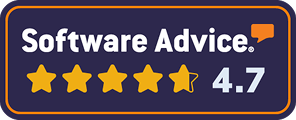الرعاية الصحية
نموذج السيرة الذاتية
اصنع انطباعًا رائعًا مع قالبنا المعتمد من جامعة هارفارد للرعاية الصحية.
الرعاية الصحية
نموذج السيرة الذاتية
اصنع انطباعًا رائعًا مع قالبنا المعتمد من جامعة هارفارد للرعاية الصحية.


انضم إلى الدورة
نموذج السيرة الذاتية للرعاية الصحية (٢٠٢٥)
كيفية تقديم معلومات الاتصال الخاصة بك
- الاسم الكامل.
- عنوان بريد إلكتروني احترافي (تجنب العناوين غير المهنية).
- اربط بمحفظتك أو LinkedIn أو ملفات التعريف ذات الصلة عبر الإنترنت (إن وجدت).
- رقم هاتف مع بريد صوتي احترافي.
كيفية كتابة ملخص رائع لسيرة ذاتية في الرعاية الصحية
محترف رعاية صحية ديناميكي ومتفانٍ يمتلك أكثر من ٥ سنوات من الخبرة في تقديم رعاية طبية عالية الجودة. قدرة مثبتة على التعامل مع سيناريوهات إكلينيكية متنوعة بمهارات حل مشكلات مثالية ورحمة. يسعى لاستغلال الخبرة في إدارة المرضى وتقنيات الرعاية الصحية للمساهمة بشكل فعال في مؤسسة طبية مرموقة.
ما المهارات التي تضيفها إلى سيرتك الذاتية للرعاية الصحية؟
المهارات الفنية:
- إدارة السجلات الصحية الإلكترونية (EHR)
- المهارات السريرية
- شهادة الدعم الأساسي للحياة (BLS)
- شهادة الدعم القلبي المتقدم للحياة (ACLS)
المهارات اللينة:
- الاتصال
- التعاطف
- العمل الجماعي
- الاهتمام بالتفاصيل
ما هي مؤشرات الأداء وأهداف الرعاية الصحية، وكيف تناسب سيرتك الذاتية؟
مؤشرات الأداء الرئيسية (KPIs):
- درجة رضا المريض
- معدل وقت العلاج المتوسط
- معدل الامتثال للبروتوكولات الصحية
OKRs (الأهداف والنتائج الرئيسية):
- تحسين تجربة رعاية المرضى بنسبة ٢٠٪ خلال العام المقبل
- تعزيز كفاءة خدمات الرعاية الصحية من خلال تحسين سير العمليات العلاجية
- زيادة الامتثال لشهادات BLS وACLS في القسم إلى ١٠٠٪
كيفية وصف خبرتك في مجال الرعاية الصحية
ضع قائمة بتجربتك بترتيب زمني عكسي. ركز على الإنجازات والمسؤوليات والنتائج القابلة للقياس الكمي.
المثال الصحيح:
- إدارة ناجحة لمجموعة من المرضى تضم أكثر من ٥٠ فردًا يوميًا، تحقيق درجة رضا ٩٨٪ من خلال الرعاية الشاملة والاتصال.
- تنفيذ نظام EHR جديد قلل من وقت استرجاع بيانات المرضى بنسبة ٣٠٪، مما أدى إلى زيادة الكفاءة.
- قيادة مبادرة تعتمد على الفريق لتحسين عمليات العيادة، خفضت وقت انتظار المرضى بنسبة ١٥٪.
مثال خاطئ:
- رعاية العديد من المرضى كل يوم.
- العمل مع السجلات الإلكترونية.
- جزء من فريق قام بتغيير بعض عمليات العيادة.







